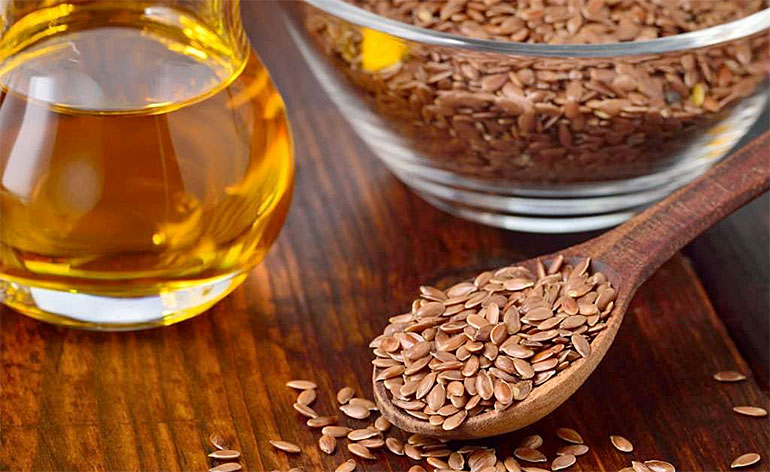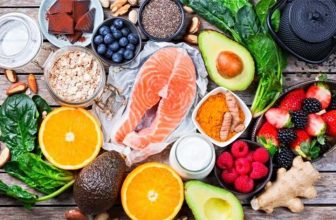
Flaxseed, sometimes called linseed, is one of the oldest crops in the world and has been cultivated for thousands of years. This nutrient-packed seed is the original “superfood”, known for a whole array of health benefits so read on for our Top 5 Health Benefits of Flaxseed!
1. Natural source of Omega 3 ALA
Flaxseed is the richest plant source of alpha-linolenic acid (ALA), one of two fatty acids that are an essential part of a healthy diet, as they cannot be produced by the human body. You may have heard that marine sources (such as fish or algae) contain a high concentration of Omega 3, but the fatty acids they provide are not actually essential, as they can be synthesized by our body using the ALA found in plant sources. Flaxseed has a number of advantages over fish sources of omega 3 fatty acids, due to concerns regarding the sustainability, ethics and allergenicity surrounding seafood products. Omega 3 fatty acids are crucial for maintaining healthy heart and brain function, fighting inflammation, reducing levels of “bad” cholesterol and strengthening the immune system.
2. Source of lignans
These crunchy little seeds are packed full of lignans, a type of plant compound found in other seeds as well as whole grains, legumes and berries. Research indicates that lignans have cancer-preventing properties and help to decrease inflammation, which is a major cancer trigger, as well as the development of deleterious heart conditions, diabetes and arthritis.
3. Heart health
The ALA, lignans and fibre found in flaxseed form a powerful ally in improving heart health. Research has linked ALA to a lower risk of heart attacks and strokes, as well as reduced risk of hypertension, blood clots and heartbeat irregularities. As an antioxidant, lignans fight heart disease. Finally, the fibre content of flaxseed lowers bad cholesterol which is also a risk factor for heart health problems.
4. Protein
Flaxseed is a great source of plant-based protein, essential for muscle growth and repair. However, it should be noted that unlike chia seeds, flaxseeds do not contain all the essential amino acids, so it is not considered a “complete” protein. Nevertheless, adding flaxseed to your diet is a great way to boost your protein intake.
5. Vitamins and minerals
Flaxseed is an excellent source of vitamin E (a powerful antioxidant) as well as many important B-complex vitamins including riboflavin, folates and vitamin B6. It is also a rich source of minerals, notably magnesium, potassium, calcium, iron and zinc.
It’s important to note that the hard, shiny coating of whole flaxseed is not broken down by your digestive tract. Therefore, for maximum nutrient absorption, you need to either grind whole flax seeds to break down this tough outer shell or buy ground (or “milled”) flaxseed. Its sweet, nutty taste makes it a great addition to a wide variety of foods. To enjoy the health benefits described above, try adding a tablespoon to your morning oats or smoothie, mixing it into baked goods or sprinkling it over salads and yoghurt! Love flaxseed? Tell us below or @ keepfitkingdom !









